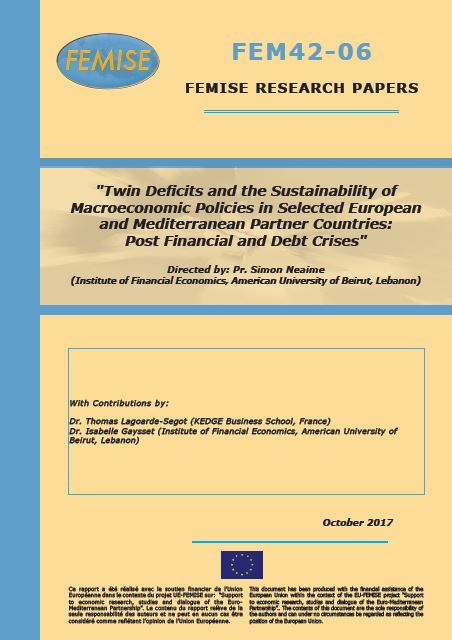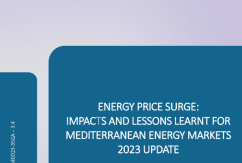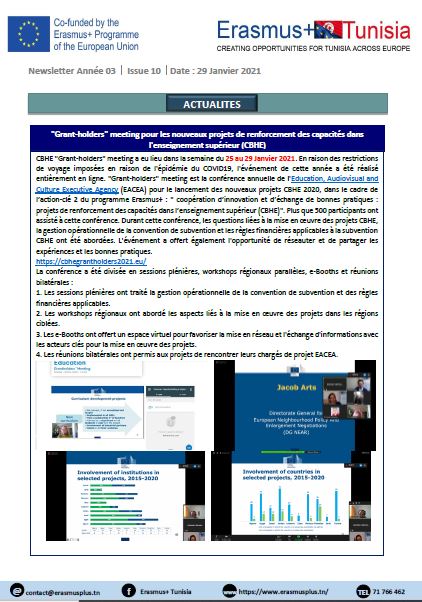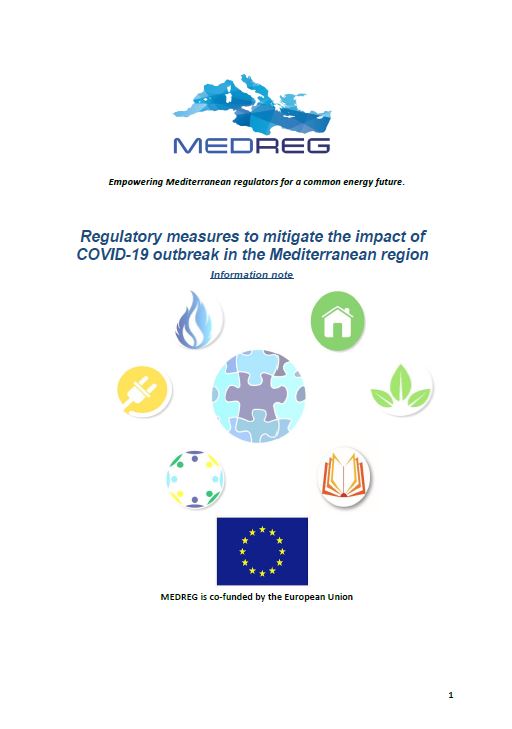FEMISE research paper: Twin Deficits and the Sustainability of Macroeconomic Policies in Selected European and Mediterranean Partner Countries


The empirical results validate the Twin Deficit hypothesis in both EU and MED samples, but with diverging findings regarding the direction of causality. While the trade balance seems to be driving the budget deficit in MED countries –thereby validating the current account targeting approach – the relationship appears to run in the opposite direction in the case of EU countries, where the budget balance appears to be driving the current account.
Given the well-documented dependence of MED countries on trade with the EU and the fact that most EU countries have implemented austerity policies in the aftermath of the financial crisis – thereby restricting aggregate demand and imports – it is argued that the ensuing drop in export income for MED countries has contributed to increasing the budget deficit in these countries, by virtue of the uncovered positive causality between the current account and the budget balance.
One natural MED policy makers’ response would be to implement austerity measures; however, such measures which may be necessary, are socially costly in the current social context in MED countries, and would not alone permit to stabilize the budget balance given that they would leave the trade balance unaffected.
The findings thus represent a warning against such ‘ready-made’ macroeconomic policy responses and indicate that austerity policy in EU countries have unexpected consequences for fiscal stability in MED countries. FEMISE report thus calls for better macroeconomic policy coordination between the EU and its Southern peripheral MED countries.





































